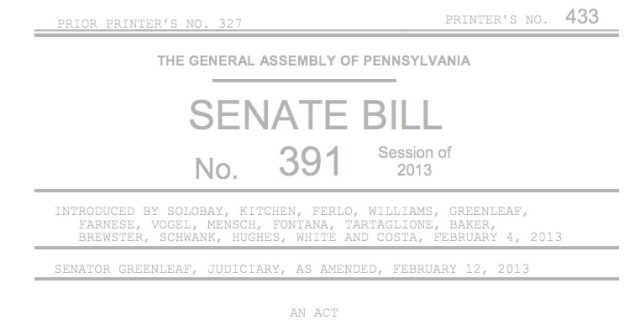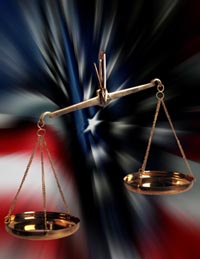Senate Bill 391 expands expungement law to include misdemeanors of the second and third degree; however, not all misdemeanors of the second and third degree are eligible to be expunged. Not only do they have to be a qualifying offense, but the person must also have been free of arrest or prosecution following termination for the sentence for seven to ten years. Additionally, misdemeanors in the second degree are only eligible if the offense was committed when the person was 25 years old or younger.
There is a SB391 support website that you can subscribe to for more information: http://pa-expungement-now.com
The bill lists certain offenses that are not eligible. Those offenses are:
- Any offense listed under section 913 (possession of a firearm or dangerous weapon in court) in the third degree
- A violation of section 2701 (assault) in the second degree
- A violation of section 3219 (relating to sexual intercourse with an animal)
- A violation of section 4912 (relating to impersonating a public servant)
- A violation of section 4952 (relating to intimidation of public servant)
- A violation of section 4953 (relating to retaliation against witness, victim, or party)
- A violation of section 5511 (relating to cruelty to animals)
- A violation of any provision in chapter 61 (relating to firearms)
- Any violation which requires registration under 42 Pa.C.S. Ch. 97(H)
In addition to the listed offenses, the proposed law does not allow expungement for any person convicted of an offense punishable by imprisonment of more than two years. Since 30 Pa. Cons. Stat. section 923(a) lists the permissible punishments for first degree misdemeanors and felonies as more than two years, anyone convicted of a offense categorized as a misdemeanor of the first degree or any felony would not be able to expunge any offense, even if the other offense was not a misdemeanor or the first degree or a felony.
Moreover, the bill protects against habitual offenders. The proposed expungement law would not allow an offense to be expunged if the person has been convicted of four or more offenses that are punishable by imprisonment of one or more years. Since misdemeanors of the first and second degree and felonies are punishable by more than one year a person would not be able to expunge an unlimited number of offenses. Therefore, even if an individual meets all the other requirements to expunge a third degree misdemeanor, the person would unable to if they had four misdemeanors in the second degree.



